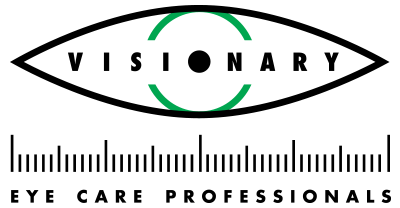Health is at the forefront of our minds during this unprecedented time. On top of our worries about coronavirus, we are also contending with upended routines, unemployment, missing friends and family, and finding distractions. Our routines upended. While most of us are concerning ourselves with getting what we need and remaining healthy, we’re overlooking an important aspect of our overall health: our eye care. We’re all staring at screens a lot longer than we used to, and few of us even thought that was possible (keep a lid on it, Apple Screen Time Report, no one needs to hear from you right now). Our children are e-learning, and we’re Zoom conferencing holidays, plus we have our regular eye health to think about.
Even in these uncertain times, we’re here for you. It is our goal at VEC to shed a bit of light on some questions or concerns that many may have with respect to Covid-19 and their eye health. Here are some of the most common questions we’ve seen throughout the industry and our answers for you.
Q: Is it better to wear contact lenses or glasses during the outbreak?
Though this is still being debated within the eye care community, overall both are fine as long as proper hygiene is being followed. COVID-19 can cause conjunctivitis or “pink eye,” though this virus has not been isolated in human tears. Therefore, the usual hygiene guidelines apply: Wash your hands thoroughly, and avoid touching your face, and continue social distancing.
Q: Can I still order contact lenses or glasses?
You can request contact lenses through our patient portal or on our website. We are monitoring and processing those requests. Ordering a new, complete pair of glasses (frames and lenses) is difficult at this time, as the office is not open for retail shopping. If you have an existing pair of glasses from Visionary and need new lenses, we are working on protocols for lens only replacements. Contact us through the patient portal or by email at info@visionaryec.com. If you need to reorder an existing pair of glasses previously purchased from Visionary and your prescription is valid, we will work with the manufacturer to fulfill the new order for the frame and supply the lenses through our lab resources.
Q: Can I come in for my routine vision exam at this time?
Per CDC guidelines and following state and city recommendations, we are closed for any routine eye care services. Contact your eye doctor through the patient portal if you have questions about your prescription medications, glasses, or contacts.
Q: What constitutes an eye emergency?
There are many things that constitute an eye emergency, and it is dependent on the individual patient, circumstances, and the severity of the symptoms. If you are experiencing a sudden change in your vision or visual field, including flashes of lights or floating spots, you should contact your doctor immediately through the patient portal. Other symptoms that could constitute an emergency include, but are not limited to: eye pain, redness in a contact lens wearer, and injuries to the eye. If you are unsure if what you are experiencing is an emergency, you should reach out and discuss it with your optometrist as soon as possible. You can also email your doctors directly: Dr. Ciszek and Dr. Warner are both checking emails regularly. To initiate a telemedicine consultation with your optometrist, reach out through the patient portal. These visits are billable to your medical insurance.
Q: I use a medicated eye drop that needs to be monitored. What should I do?
Contact your doctor through the patient portal. The co-pays for telemedicine visits are typically low and your optometrist can discuss the risk of coming to the office versus the benefit of having your condition monitored.
Q: What should I use to clean my contact lenses?
For contact lenses, any of the commercially available, branded disinfectant / storage systems should be safe, IF USED PROPERLY! Most multi-purpose contact lens disinfectants will disinfect without having to rub the lenses. However, rubbing the lenses after they are removed and before they are put in the case better removes debris and possible infectious organisms. After washing your hands, place the lens in your palm, put a couple of drops of the disinfectant solution on the lens and rub with your index finger, away from the nail. Then rinse. Then place the lens in the case. Every time you remove the lenses from the case, the case should be rinsed with tap water and allowed to air dry. Do NOT simply “top off” the solution from day to day. The most effective disinfection system is a hydrogen peroxide based system like Clear Care. Be very certain to follow the directions. You will burn your eye if you put hydrogen peroxide directly into the eye. Therefore, the lenses must be in the case with the neutralizing disk no less than six hours. Once at least six hours have passed, the lenses will be safe to put in. Your lenses can be stored in that solution for longer than six hours until you’re ready to use them. To clean your glasses, you can use your usual glasses cleaning solution or soap and water and dry with a cotton cloth or air dry. DO NOT clean your lenses by rubbing the cloth in a circle, or you risk dragging debris around the lens that could scratch it. Here’s a quick tutorial. For disinfecting PPE eyewear, refer to the 3M link below.
Q: I am an essential worker. What should I do to protect myself at this time? Should I wear my glasses or contacts?
Again, this is being debated and there is no concrete data. However, be aware that regular glasses actually allow air flow around the frame and could possibly direct droplets towards the eye. For people who are not being exposed to possible aerosolized droplets, regular glasses are probably fine. For those who have the possibility of exposure
to aerosolized droplets (for example, respiratory therapists), a full face shield or goggle type glasses are recommended. If you have to wear contacts (for example, patients with keratoconus) safety glasses over the contacts would be advisable. Again, your exposure risk factors and individual situation may help to inform your best way to stay healthy. The eye care community, CDC, and WHO are currently researching and updating recommendations regularly. The following is a technical bulletin from 3M regarding eye protection for infection control: https://multimedia.3m.com/mws/media/576928O/tech-data-bulletin-192-eye- protection-for-infectious-disease.pdf
Though this is not an exhaustive list of questions, we hope that this helps answer any that you may have. For more information regarding your eye care needs or any additional information, please do not hesitate to reach out to your Visionary friends.
Stay safe and healthy.
VEC Team.

